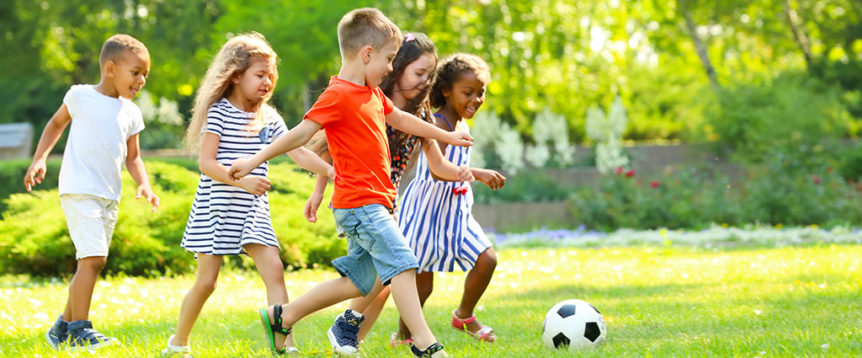
Active Play: Nurturing Physical Activity in Kids

Nurturing Healthy Habits: Active Play for Kids
In a world dominated by screens and sedentary lifestyles, fostering physical activity in children is crucial for their overall well-being. Active play goes beyond structured sports; it involves engaging in unstructured, spontaneous activities that promote movement, creativity, and joy. Let’s explore the importance of active play for kids and how it contributes to their physical, mental, and emotional development.
The Power of Unstructured Play
Unstructured, active play allows children to explore and discover the world around them on their terms. Whether it’s running, jumping, climbing, or playing imaginative games, unstructured play promotes physical fitness and helps develop gross motor skills. This type of play also encourages creativity, problem-solving, and social interaction as children navigate and negotiate their play environments.
Physical Benefits of Active Play for Kids
Active play provides numerous physical benefits for growing bodies. It helps develop strong bones and muscles, improves coordination, and enhances flexibility. Regular physical activity is also associated with maintaining a healthy weight, reducing the risk of obesity-related issues in children. Additionally, active play supports cardiovascular health, laying the foundation for a lifetime of well-being.
Mental and Cognitive Development Through Movement
Physical activity and active play are closely linked to cognitive development in children. Movement stimulates the brain, supporting the development of neural pathways. Engaging in activities that involve coordination, balance, and spatial awareness contributes to cognitive skills such as attention, memory, and problem-solving. In essence, active play is not just about physical fitness; it’s an integral part of a child’s overall cognitive development.
Emotional Well-being and Social Skills
Active play is a natural mood booster for kids. Physical activity releases endorphins, the “feel-good” hormones, promoting a positive emotional state. Moreover, active play often involves social interaction, helping children develop crucial social skills. Team sports, group games, and even simple playdates contribute to the development of communication, cooperation, and conflict resolution skills.
The Role of Parents in Encouraging Active Play
Parents play a pivotal role in fostering a love for active play in children. Setting a positive example by prioritizing physical activity, engaging in family-friendly activities, and creating opportunities for outdoor play are effective ways to encourage active lifestyles. Limiting screen time and providing a variety of toys and equipment for play further supports the development of healthy habits.
Active Play Beyond Traditional Sports
While organized sports are beneficial, active play extends beyond them. It includes activities like hide-and-seek, tag, dancing, bike riding, and even imaginative play with toys. The key is to make physical activity enjoyable and accessible for children, allowing them to discover activities they love and can incorporate into their daily routines.
Exploring Active Play Products with Petunia Pickle Bottom
Discover a range of products designed to encourage active play for kids with Physical Activity Kids. Petunia Pickle Bottom offers a selection of items that promote movement, creativity, and outdoor exploration for children. Explore the collection to find products that inspire active play and contribute to the holistic development of your child.
Balancing Screen Time with Active Play
In today’s digital age, children are often drawn to screens for entertainment. While technology has its place, striking a balance between screen time and active play is essential. Setting clear guidelines and creating designated times for physical activities can help children develop a healthy relationship with both active play and screen-based entertainment.
Safety Considerations for Active Play
Ensuring the safety of children during active play is paramount. Providing age-appropriate equipment, creating safe play environments, and supervising activities are crucial aspects of promoting a secure play experience. Teaching children about safety rules and encouraging responsible play further enhances the benefits of active play.
Active Play: A Lifelong Foundation for Well-being
In conclusion, active play is not just a childhood pastime; it lays the foundation for a lifetime of physical, mental, and emotional well-being. Embracing and encouraging active play in children contributes to their holistic development and instills healthy habits that can last a lifetime. So, let’s celebrate the joy of movement, creativity, and exploration as we nurture the well-being of the next generation.







